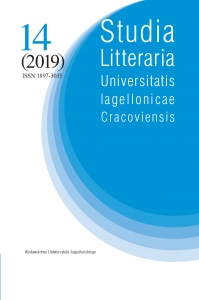Autobiografizm w prozie Jána Roznera – wybrane zagadnienia
Autobiographism in Ján Rozner’s Prosaic Works – Selected Issues
Author(s): Rafał MajerekSubject(s): Media studies, Recent History (1900 till today), Slovak Literature, History of Communism, Theory of Literature
Published by: Wydawnictwo Uniwersytetu Jagiellońskiego
Keywords: Ján Rozner; Zora Jesenská; autobiographism; totalitarism; identity;
Summary/Abstract: The paper focuses on autobiographical aspects of Ján Rozner’s prose, which was published in Slovakia after his death (2006), and soon became a great literary sensation. In three books: Sedem dní do pohrebu (Seven Days to the Funeral, 2009), Noc po fronte (The Night after the Front, 2010), Výlet na Devín (The Trip to the Devín Castle, 2011) Rozner, a leading communist journalist and critic of the 1950s, then one of the active proponents of the Prague Spring’s democratization process, thrown out of work and blacklisted after the Soviet invasion in Czechoslovakia in 1968, finally in emigration in Germany after 1976 – combines individual problems with social and cultural issues making a specific interpretation of his own life, his intimate affairs and political choices. His writing can be considered as a kind of therapeutic process, especially the novel Seven Days to the Funeral, in which the author deals with death of his wife, Zora Jesenská, distinguished translator, mainly from the Russian literature. In the article the novel is interpreted as a literary attempt to cope with the pain caused by the great loss, but also as a kind of engaged, subjective reflection on history and politics with its devastating impact on people’s lives.
Journal: Studia Litteraria Universitatis Iagellonicae Cracoviensis
- Issue Year: 15/2020
- Issue No: 2
- Page Range: 139-151
- Page Count: 13
- Language: Polish

